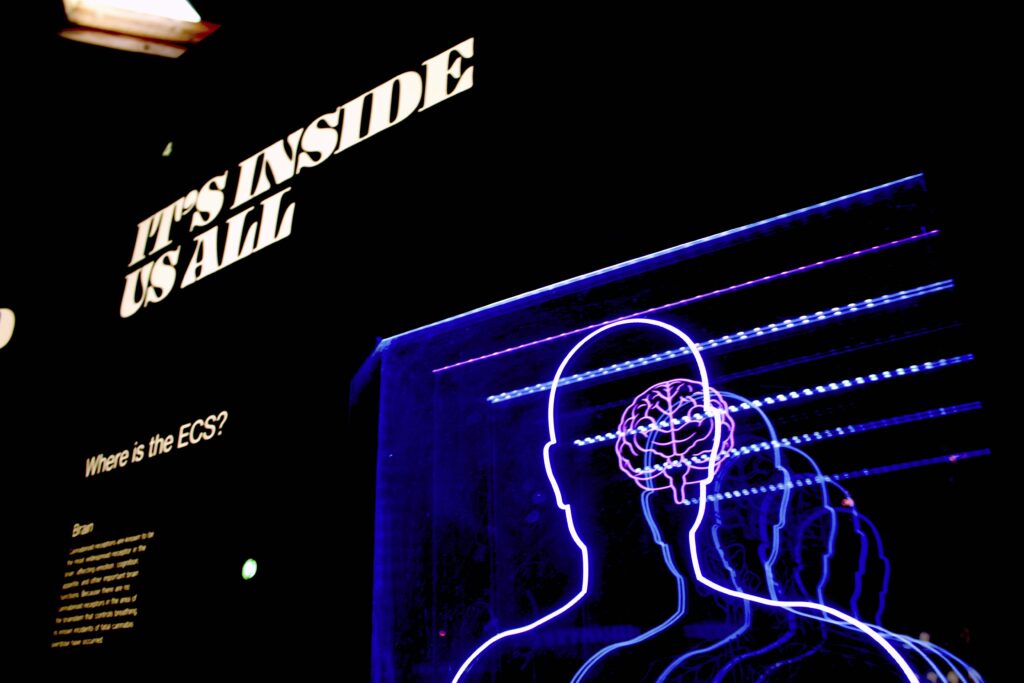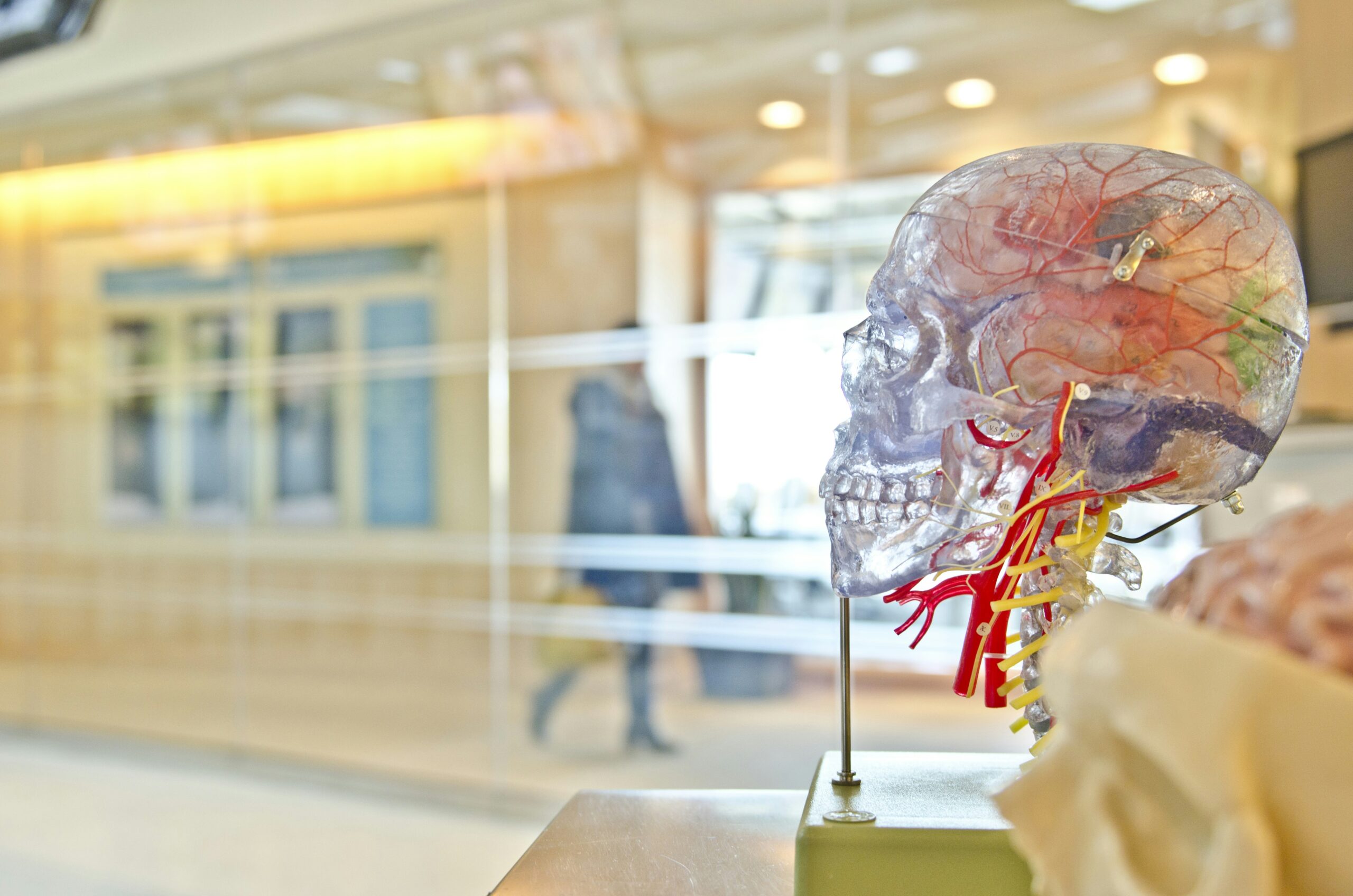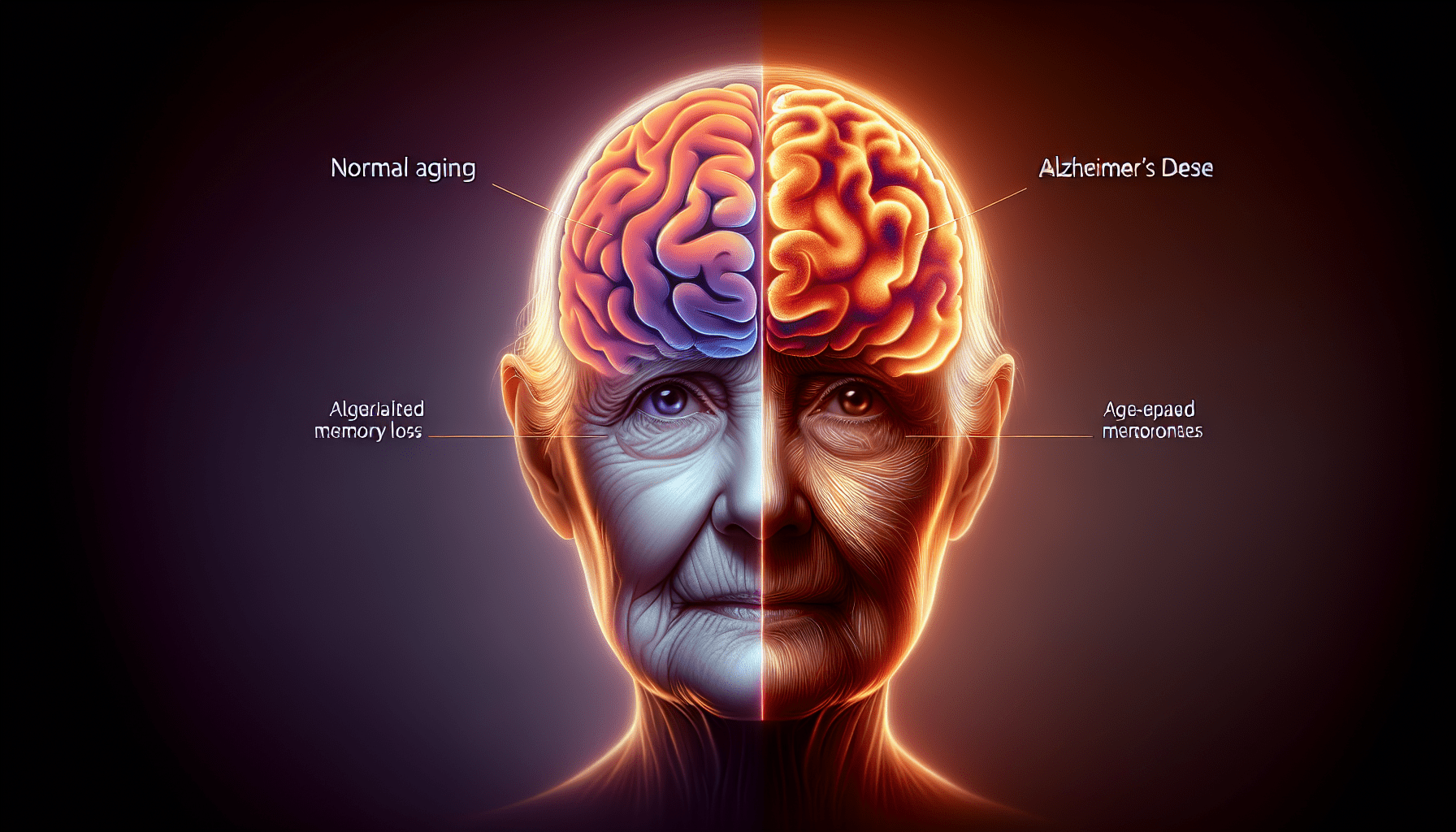Is it possible you've walked into a room and forgotten why you’re there, or misplaced your keys only to find them in a completely unexpected spot? At a certain point, you might question whether these moments are simply part of getting older or something more serious like Alzheimer's disease. You're certainly not alone in this. The distinction between normal age-related changes in memory and cognitive function, and those indicative of Alzheimer's, can be a murky one.
Introduction
As you navigate through the years, experiencing some changes in memory is a natural part of aging. However, differentiating between typical age-related memory loss and Alzheimer’s disease can feel daunting. Understanding these differences is crucial not only for your peace of mind but also for ensuring the right approach to health through the years.
Age-Related Memory Loss
What is Age-Related Memory Loss?
As you age, certain changes in memory and thinking skills are to be expected. These changes are typically mild and do not significantly impact your daily life. If you’re wondering whether what you’re experiencing is normal, read on for insights into what age-related memory loss might look like for you.
Characteristics of Age-Related Memory Loss
Age-related memory loss generally manifests as occasional forgetfulness. You might forget where you placed familiar objects, like your glasses or phone. This kind of memory loss doesn't prevent you from living your life independently, though you may find it helpful to make use of strategies for remembering things. Does this sound familiar?
Why Does This Happen?
Your brain, like the rest of your body, changes over time. Neural connections can weaken, resulting in slower recall or reduced efficiency in finding the right words. However, cognitive functions such as wisdom, knowledge, and expertise can improve with age, reflecting a complex balance rather than a straightforward decline.
When Should You Be Concerned?
While occasional lapses in memory are normal, it's important to pay attention to the frequency and impact of these lapses. If forgetfulness begins to interfere with your daily activities or relationships, it might be worth discussing with a medical professional.
Alzheimer's Disease
What is Alzheimer’s Disease?
Alzheimer’s disease is a progressive neurological disorder that affects memory, thinking, and behavior. It is not a normal part of aging and involves more serious memory impairment than what would be expected in later life. If you or a loved one is having significant difficulty with memory, it might be indicative of Alzheimer's.
Symptoms of Alzheimer's Disease
Alzheimer's disease encompasses memory loss that disrupts daily life. This can include forgetting recently learned information, asking the same question repeatedly, or needing to take longer to complete familiar tasks. In addition to memory, you might notice impairments in judgment, decision-making, and spatial awareness.
Why Does Alzheimer’s Happen?
Alzheimer’s is believed to result from complex interactions among genetic, lifestyle, and environmental factors that affect the brain over time. This leads to brain cell death and changes in brain structure, which play a central role in the progression of the disease.
Progression and Stages
Alzheimer's disease typically progresses slowly in three stages: early, middle, and late. During the early stage, you may still be able to function independently, yet notice memory lapses. In the middle stage, symptoms become more pronounced. The late stage is characterized by severe symptoms and increased assistance in daily activities.
Diagnosis
Getting an early diagnosis of Alzheimer’s is beneficial for planning and management. Diagnosis may involve physical and neurological examinations, mental status tests, and brain imaging. If you have concerns about memory changes, reaching out to a healthcare provider for evaluation is a crucial step.
Table Highlighting Differences between Age-Related Memory Loss and Alzheimer's Disease
You might find it useful to look at a simplified comparison of symptoms. Here’s a table to guide you through:
| Symptoms | Age-Related Memory Loss | Alzheimer's Disease |
|---|---|---|
| Memory Forgetfulness | Occasionally forgetting names or appointments | Frequently forgetting important dates or events |
| Tasks | Able to perform daily tasks independently | Difficulty performing familiar tasks |
| Communication | Sometimes struggling to find the right word | Frequent word-finding pauses or repetitions |
| Spatial Awareness | Getting lost in unfamiliar places | Getting lost in familiar places |
| Impact on Daily Life | Mild impact | Significant disruption to daily life activities |

Managing Age-Related Memory Loss
Tips and Strategies
If managing age-related memory changes is a consideration for you, practical strategies could be beneficial. Routinely organizing items in specific places, using reminder systems, and engaging in mental exercises can help keep your memory sharp.
Nutrition and Exercise
Living a healthy lifestyle is crucial not only for your body but also for brain health. Incorporating a balanced diet rich in fruits, vegetables, and lean proteins, coupled with regular physical activity, can positively influence cognitive function.
Mental Stimulation
Engaging in activities that challenge your brain, such as puzzles, writing, learning a new skill, or playing an instrument, can be incredibly effective. By keeping your brain active, you reinforce neural pathways and contribute to memory preservation.
Coping with Alzheimer's Disease
Care Plans and Support
For individuals diagnosed with Alzheimer's, crafting a comprehensive care plan is key. This might include medical treatments, psychological support, and strategies to manage symptoms. Creating a supportive environment can enhance quality of life.
Medications and Treatments
While there's currently no cure for Alzheimer's, certain medications can temporarily slow the worsening of symptoms. These therapies can assist in handling memory loss and behavioral changes, making day-to-day life more manageable.
Support for Caregivers
Caring for someone with Alzheimer's can be challenging. As a caregiver, accessing support groups, respite care, and counseling services can provide necessary relief and connection with others facing similar experiences.

Moving Forward
Regular Check-Ups
Staying proactive with regular medical check-ups and cognitive assessments can play a crucial role in catching any concerning signs early. Building a partnership with trusted healthcare professionals allows you to navigate this journey more confidently.
Building a Support Network
Whether dealing with age-related memory changes or Alzheimer’s, having a robust support network is beneficial. Connecting with family, friends, and community resources ensures that you're well-positioned to handle changes as they come.
Acceptance and Adaptation
The journey through memory changes involves acceptance and adaptation. Embracing transformations, altering expectations, and utilizing available resources allow you to live vibrantly and resiliently.
Conclusion
In understanding the distinction between age-related memory loss and Alzheimer’s disease, you empower yourself to take informed steps for your health. Whether experiencing typical memory changes or confronting Alzheimer's, recognizing symptoms and pursuing appropriate strategies makes all the difference in this chapter of life. Remember, it's always worth reaching out to healthcare professionals for clarity and support tailored to your unique situation.


